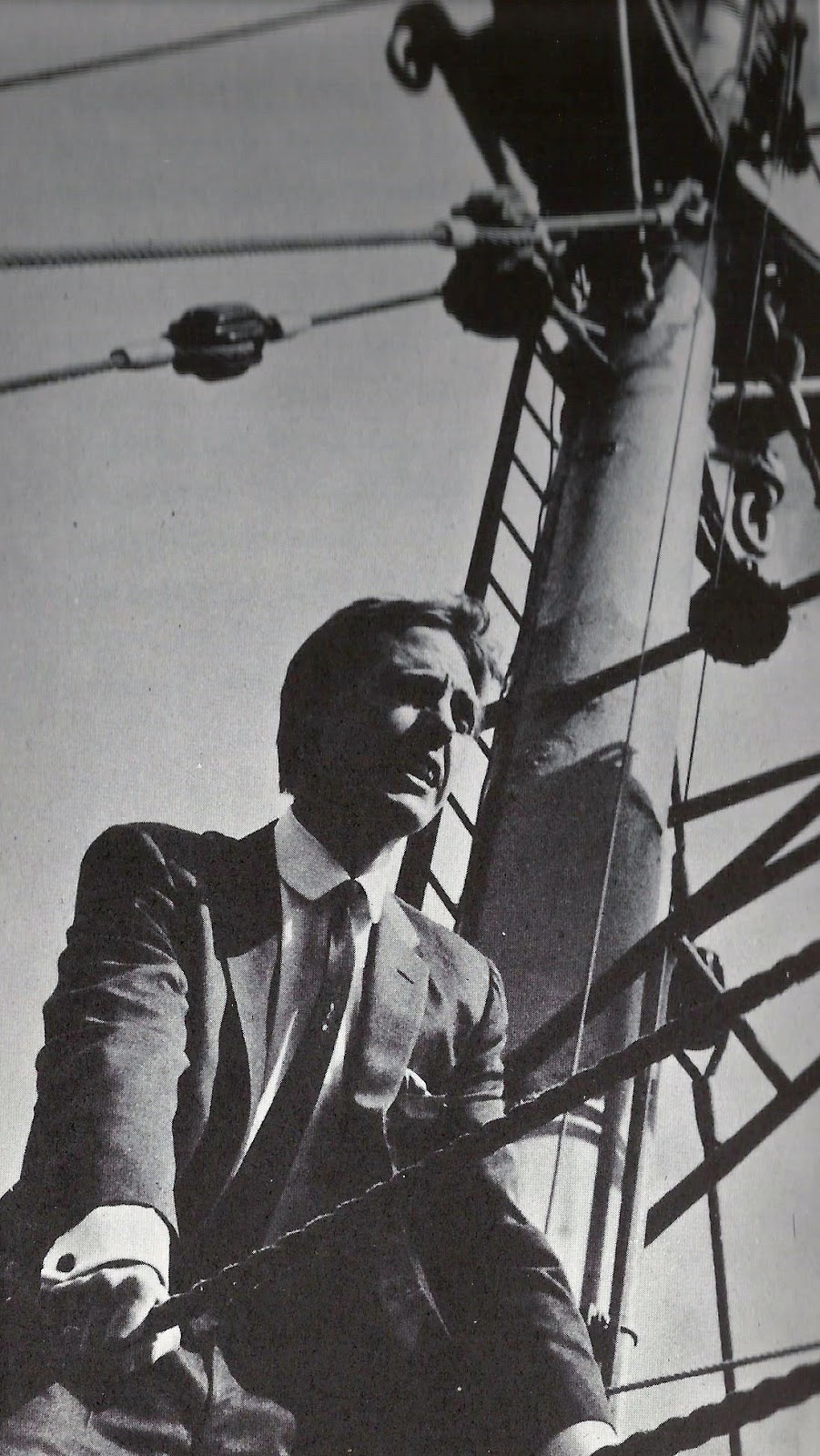 |
| Radio Caroline, soon after it dropped anchor |
They went bearing record requests, letters of encouragement and other small items which they planned to throw on board a ship that was out there broadcasting continuous pop music into millions of British homes. It was a brand new, unique and apparently illegal service that had caused untold shock and excitement on the mainland.
Nine miles off Felixstowe was anchored this pirate ship, its occupants unsure how popular their venture would prove, and never expecting the incredible show of support that was about to engulf them in the coming days.
The venture represented one in the eye for the staid BBC and its broadcasting monopoly, and for the UK government, with its strict, out-of-date rules and regulations. It would prove the biggest cultural breakthrough since TW3 (That Was The Week That Was) hit TV screens with its fearless satire.
The press loved the fuss that was being created. The Daily Mail asked the authorities about the ship’s legality and was told: “They are positioned beyond territorial waters. To stop them we would have to fire torpedoes. But that’s a bit drastic isn’t it?”
The former 700-ton passenger ferry Fredericia, with its massive 160-foot mast, was not hard to locate and the little boats full of fans drew alongside, screaming and waving at the men on board and throwing bits and pieces on board with messages and record requests attached.
Back on land, the impact of the first two days of broadcasting had been huge. The signal on 199 metres was strong and the unprecedented format of continuous pop records was clearly a big hit with the public.
But why was this new phenomenon called ‘Caroline’? The answer lie with the station’s Irish founder Ronan O’Rahilly, who chose the name while on a recent flight to Texas to buy the transmitters. Flicking through a copy of Life magazine, he came across pictures of President Kennedy at work in the White House. In one of them, the President’s tiny daughter Caroline was playing on the floor under her daddy’s desk, while the important men around her held high-level discussions. The headline above the item stated ‘Caroline disrupts the Western World’. On reading that sentence, O’Rahilly said, “Bang! That was it, the station had to be called Caroline!”
Another popular question concerned the mystery men on board the pirate ship. One paper reported there were four disc jockeys, the American Chris Moore, a Swede, and two Brits, one of whom liked to be known as Simon Dee. This quartet expected to stay on board for three weeks before being taken off by a supply tender which would bring out temporary replacements while they had two weeks’ rest.
The crew was mainly Dutch, led by Captain Mackay, a 50-year-old Lancastrian who revealed that in nearly 40 years of sea-faring experience he’d never been able to call himself a ‘pirate’ before.
By the time the station had been on air for 48 hours it was estimated that it had garnered an incredible 20 million listeners, and word was still spreading fast . . . .

